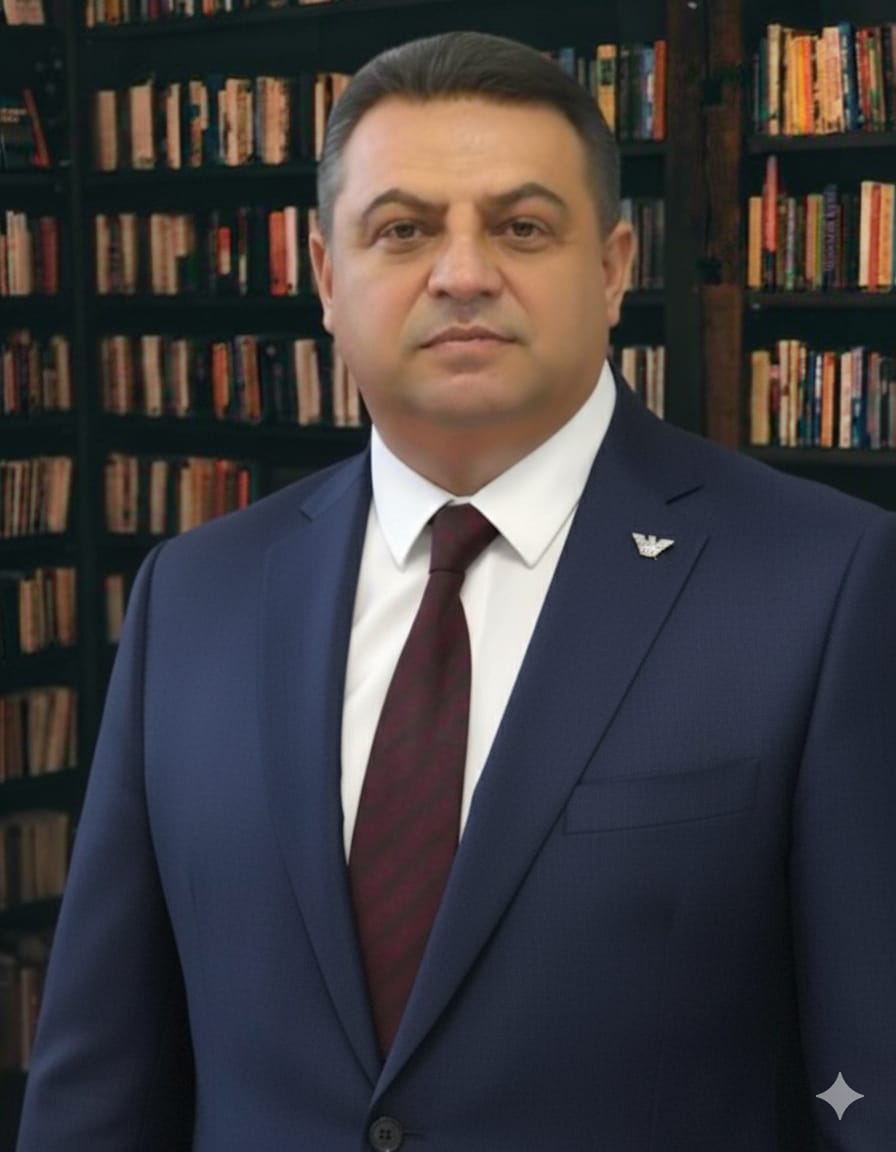
Prof. Dr. Ana Campina
University Fernando Pessoa, Portugal
Keynote Title: “The Human Rights Generations and the Artificial Intelligence”

Prof. Dr. Carlos Rodrigues
University Fernando Pessoa, Portugal
Keynote Title: “The Human Rights Generations and the Artificial Intelligence”

Prof. Dr. Özcan Asilkan
Senior Lecturer
Business Analytics Department
Higher Colleges of Technology
Abu Dhabi, United Arab Emirates
Keynote Title: AI-Powered Personalized Learning Pathways
Bio: Prof. Dr. Özcan Asilkan is an accomplished Computer Science Engineer and Academic with a robust background spanning higher education and multiple industries, including software development, data analysis, manufacturing, tourism, and healthcare. His research interests cover a broad range of interdisciplinary topics such as Management Information Systems (MIS), Business Analytics, Computer Science, Database Systems, Data Mining, Customer Relationship Management (CRM), and Hospitality Management.
With nearly 30 years of combined academic and industry experience, Prof. Asilkan has held numerous teaching and professional engagements across almost 10 countries and 15 universities worldwide.
In academia, he has served in various leadership and instructional capacities; including Dean, Chair, and Lecturer, and has taught a wide array of courses while publishing nearly 70 academic papers. He has also participated as a Chair and Keynote Speaker at more than 10 international conferences.
As a Computer Science Engineer, Prof. Asilkan has undertaken diverse professional roles such as Systems Analyst, Database Administrator, Application Developer, and Consultant, contributing to several major projects, including the implementation of CRM and ERP systems.
Since July 2024, he has been serving at the Higher Colleges of Technology (HCT) in Abu Dhabi, United Arab Emirates.

Prof. Dr. Huseyin UzunboyluProfessor of Educational TechnologyAssociate Professor, Educational Sciences (Instructional Technology) (UAK-Turkey); Associate Professor, Computer Education and Instructional Technology; Ph.D. Special Education; Ph.D. Computer Education and Instructional Technology.
Keynote Title: “Publishing in High Impact Factor International Journals; with Present Examples”

Prof. Dr. Bekim Fetaji
Full Professor
Faculty of Informatics
Mother Teresa University
Skopje, North Macedonia
Email: bekim.fetaji@unt.edu.mk
Keynote Tile: Devising Algorithmic Framework for Cybersecurity Scientific Analytics
Biography: Bekim Fetaji is Full Professor of Informatics (Computer Sciences) at University Mother Teresa, Skopje, North Macedonia. I received his PhD in Computer Sciences at the Faculty of Computer Sciences at Graz University of Technology in 2008. He received his master’s degree from Oxford Brookes University, Oxford, England UK. He was Visiting Professor at Staffordshire University UK, Tokyo University of Agriculture and Engineering, Japan, OREBRO University, Computer Science, Sweden, Canadian Institute of Technology, Tirana, Albania, Rochester Institute of Technology RIT, campus Prishtina, Kosovo, University of Novi Pazar, Serbia and other Universities. More than 25 years of teaching experience and working in higher education in different Universities in the region and abroad. Lectured in 4 languages in different Universities: English, Albanian, Macedonian, Serbian language.
Participated in several projects within different programs such as Tempus, Erasmus and other national and international research projects. Published more than 150 scientific papers in international conferences most of them in IEEE and ACM and more than 30 international journals, some of them with ISI Web of Science impact factor. Published 9 (nine) academic textbooks and 2 (two) books in English that can be found online at Amazon. Keynote speaker in many conferences among others also in IEEE Conferences (Reference: https://iccece23.theiaer.org/keynote.html).
Main research interest and published work is in enhanced technology enhanced education, virtual learning environments, software engineering, programming and lately Data science with AI and machine learning, Data processing with Data Analytics and closely related fields.
